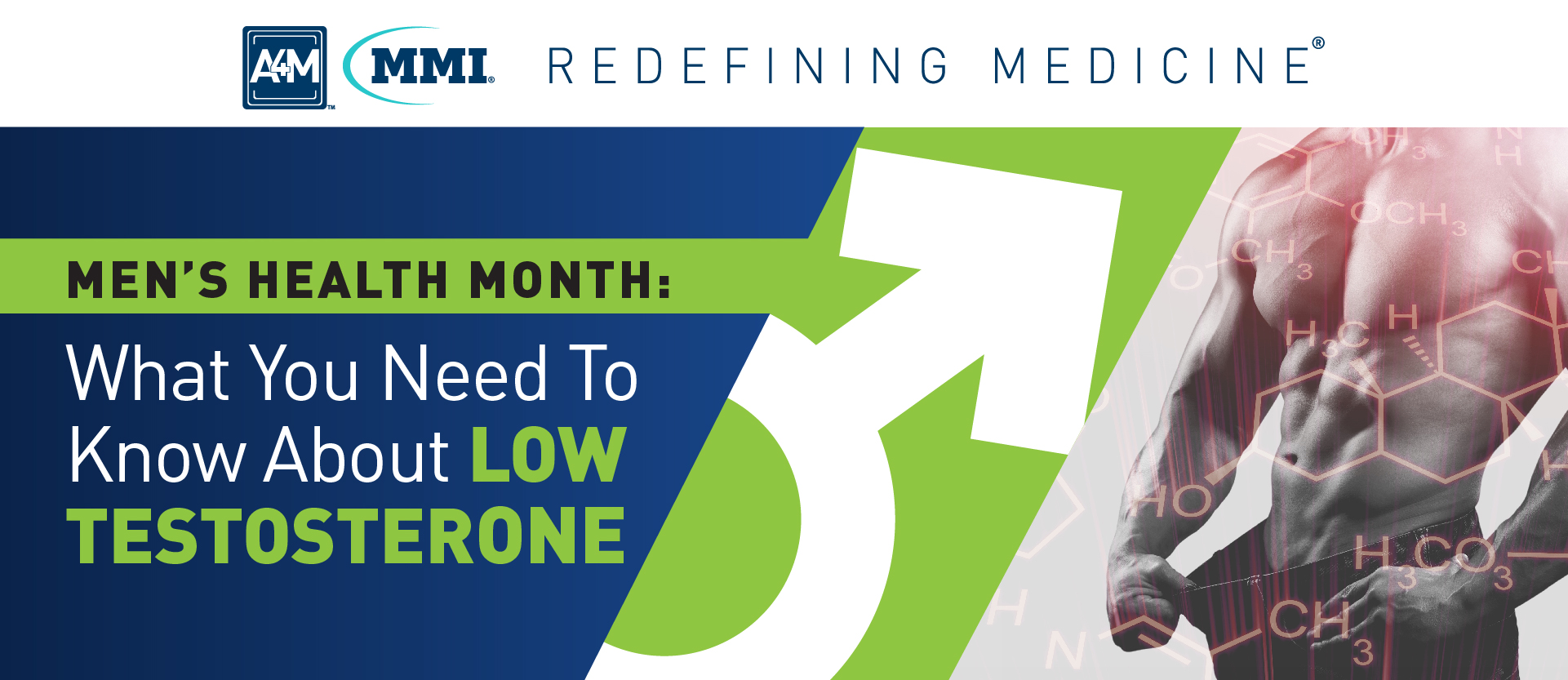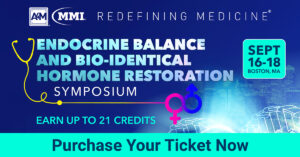[ad_1]
June celebrates National Men’s Health Month, an annual observance that aims to bring awareness to health issues specific to men, such as prostate cancer, testicular cancer, mental health stigma, and hormone imbalances specific to men. One such condition – which can affect both men and women – is low testosterone, also known as hypogonadism.
Testosterone is responsible for many biologic functions, including the development of bones and muscles, energy metabolism, and sex drive. In males specifically, the hormone regulates hair growth, deepening of the voice, and sperm production.
Low testosterone is a hormonal disorder in which the testes do not produce enough testosterone. It is estimated that between 4 and 5 million men in the United States, or approximately 2 in 100 men, have testosterone deficiency, and its prevalence is substantially higher in older males, with nearly 40% of men aged 45 and older presenting with low levels of the hormone.
Signs and Symptoms
Common symptoms of testosterone deficiency include low libido, erectile dysfunction, fatigue, and depression. Symptoms may be subtle at first but can lead to significant health issues such as weight gain, increased diabetes risk, osteoporosis, and loss of sex drive.
Testosterone deficiency can manifest as difficulty maintaining muscle mass and reductions in bone mass; the hormone plays an essential role in bone tissue production and bone volume maintenance. Low testosterone levels can make bones susceptible to fractures and increase the risk of osteoporosis.
Decreased energy levels, fatigue, and diminished interest in exercise or movement, as well as irritability, mood swings, depression, and anxiety, can all be symptoms of testosterone imbalance. Additionally, deficiencies can increase body fat levels and, in some instances, cause gynecomastia.
Symptoms specific to males include difficulty achieving and maintaining erections, reduced testicle size, low sperm count or poor sperm quality, and even infertility.
While it is possible for patients to have low testosterone without any symptoms, known as subclinical hypogonadism, this condition can be easily diagnosed with a blood test. According to the American Urology Association, low testosterone is defined as less than 300 nanograms of the hormone per deciliter of blood.
Causes and Risk Factors
Testosterone levels begin to decline naturally after the age of 30 in men and after menopause in women; nonetheless, testosterone deficiency can occur at any age. Levels decrease approximately 1 percent per year starting around age 30 but can be influenced by several other factors, including obesity, smoking, alcohol consumption, excessive stress, and medications such as glucocorticoids or anabolic steroids.
Therapeutic Approaches to Low Testosterone
The most common treatment for low testosterone is testosterone replacement therapy (TRT), which is favored due to its variety of delivery methods and clinical efficacy. Alongside topical gels and injections, skin patches, dissolvable tablets, and surgically implanted pellets provide patients with an array of different administration options.
Alternatively or to augment TRT, patients can try boosting testosterone levels using natural strategies. Weight loss and frequent exercise can increase circulating testosterone levels, particularly in younger individuals.
Eliminating saturated fats from the diet and adding zinc, omega-3 fatty acids, and antioxidant vitamins can also support testosterone production. A well-balanced diet rich in nutrient-dense foods, such as the Plant-Based Diet or Rainbow Diet, can positively impact testosterone levels.
Key Takeaways:
Low testosterone affects millions of men in the United States alone and can significantly decrease quality of life and healthspan, with symptoms ranging from lack of sex drive and depression to reduced bone volume and increased cardiometabolic risk. Most cases of low testosterone are treatable, and awareness of the symptoms can help a person receive an early diagnosis and treatment.
Learn more about the latest developments in endocrinology and hormone balancing from acclaimed experts in the field at the upcoming BHRT Symposium taking place between September 16-18 in Boston, MA. Sign up today!
[ad_2]
Source link

